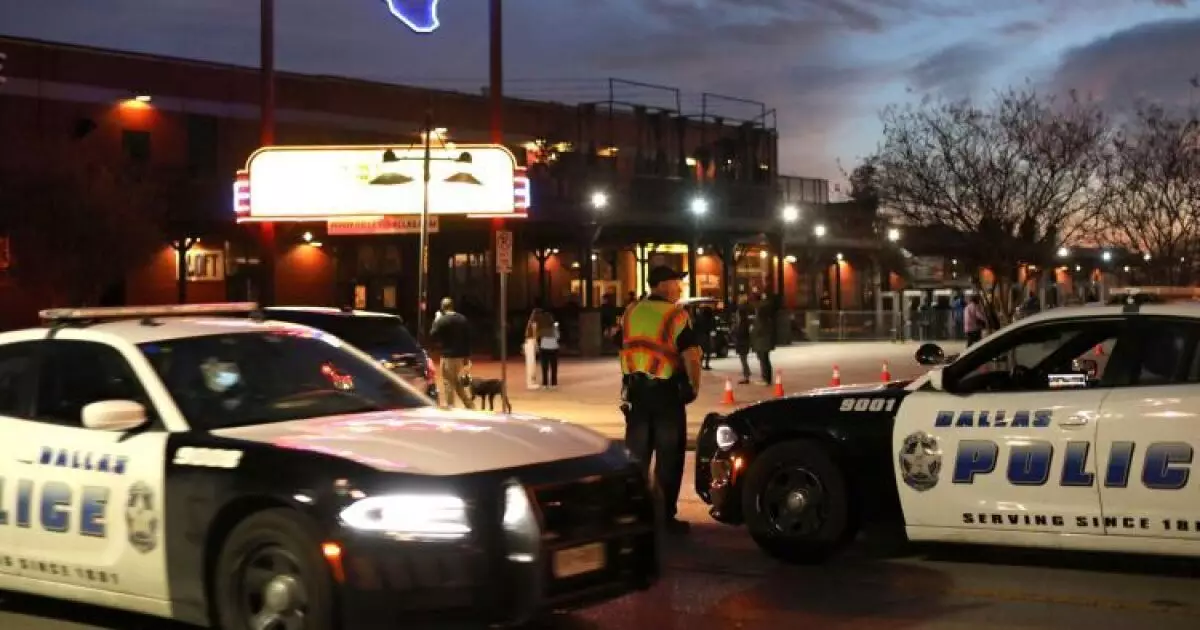Dallas’s recent budget approval underscores a concerning disconnect between political rhetoric and fiscal reality. While the city touts a $5.2 billion balanced budget for 2026, a closer look reveals a complex web of compromised commitments and strategic misrepresentations. The city’s decision to allocate nearly $2 billion to its general fund, alongside a modest $63.1 million increase to police and fire budgets, sounds impressive on paper. However, it masks underlying tensions between the city’s ambitious public safety promises and practical financial constraints. The overall optimism about hiring 350 police recruits and restoring the force to its 2016 high-water mark of 3,424 officers serves as a political move rather than a concrete step toward meaningful security enhancements.
This facade of fiscal responsibility falls apart under scrutiny. The city’s leadership claims compliance with Proposition U, yet critics argue they are intentionally sidestepping legal mandates. Proposition U’s requirement—that at least 50% of revenue increases go to public safety pensions and staffing—is being blurred by methodological gymnastics. By excluding certain revenue sources and limiting the funds considered in calculations, Dallas’s administration casts doubt on its sincerity. This approach not only undermines transparency but jeopardizes the integrity of the public safety commitments the voters narrowly approved, revealing a troubling tendency toward bureaucratic evasion rather than accountability.
The Cost of Political Posturing and Financial Shortfalls
The core problem with Dallas’s budget approach stems from an inherent conflict: meeting voter mandates while safeguarding fiscal health. The city’s revenue earmarked for public safety has been substantially constrained. Out of all potential growth—revenue increased beyond the prior year—only about $30.8 million actually qualifies for the critical expenditures mandated by Proposition U. This discrepancy exposes the superficiality of the city’s claims; a significant portion of revenue growth is either restricted by law or allocated elsewhere, leaving the city with limited room to meet its ambitious public safety pledges without resorting to debt or tax hikes.
Adding to the complexity, the city’s attempt to increase police starting salaries and ensure a robust force is a double-edged sword. The $225.7 million contribution to public safety pensions—an increase over previous years—reflects a necessary step toward fiscal health and legal compliance. Yet, it also signals the escalating costs of policing as the city attempts to meet mandated staffing levels. Moody’s response—a downgrade to negative outlook—serves as a harsh reminder that political promises to bolster public safety often come with hidden economic costs. Higher salaries and staffing do not come free, and the city’s commitments threaten its credit ratings despite the veneer of responsibility.
The recent bond issuance—a $250 million tranche tapping into voter-approved debt—illustrates Dallas’s reliance on borrowing to finance these lofty goals. While such measures can temporarily fill fiscal gaps, they risk long-term financial instability if future revenues do not materialize as expected. The city’s strategic move to leverage bonds may provide short-term reassurance, but it shifts the debt burden to future taxpayers, creating a cycle of dependency and fiscal fragility.
The Irony of Promoting Public Safety at Any Cost
The narrative of increased police funding and staffing appears compelling but ultimately superficial. The true challenge lies in balancing public safety with sustainable fiscal policy. Dallas’s leadership seems more committed to showcasing political victories—such as voter support for Proposition U—than to implementing genuine, effective reforms. The reliance on limited revenue and increased borrowing suggests that the city’s leaders are prioritizing appearances over substance.
Furthermore, the criticism from groups like Dallas HERO highlights an unsettling tendency among local officials to sideline legal mandates in pursuit of political wins. The failure to provide transparent accounting or legal justification for excluding revenue sources from calculations suggests a troubling disregard for accountability. The city’s rhetoric often emphasizes safety as a paramount concern, yet their budget choices reveal that real fiscal prudence is often sacrificed at the altar of political expediency.
This dynamic raises questions about the long-term viability of Dallas’s approach to governance. Promising increased police presence and pension funding without a clear, sustainable financial plan strikes me as a dangerously optimistic gamble. It risks eroding public trust if promises are unfulfilled or if fiscal crises force future austerity measures. Policymakers should recognize that genuine public safety cannot be achieved through borrowed funds or accounting tricks; it requires honest budgeting, transparency, and a realistic appraisal of fiscal limits.
In examining Dallas’s budget strategy, I see not a triumph of responsible governance but an illustration of how political ambitions often outpace fiscal prudence. The city’s reliance on legal loopholes, debt, and strategic underfunding underscores that short-term political advantage is often prioritized over long-term stability. A truly responsible approach demands integrity and transparency—qualities that Dallas’s leadership must strive to embody if it wishes to maintain trust and financial health.

